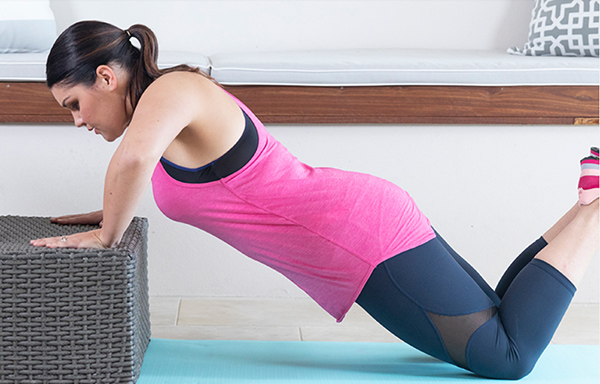Independent online research conducted by YouGov on behalf of wellness company WW ((formerly known as Weight Watchers) – the WW Habits for Healthy Living Report – surveyed 1,071 Australians aged 18 years and older on how Australians perceive their own health. The research conducted between between 6th and 9th August 2020 when compared against government figures for obesity and mental health raised serious concerns about Australians’ perceived health versus reality.
The WW Habits for Healthy Living Report was conducted to gauge how Australians are feeling about their holistic health during this time, and asked Australians to rate their own wellness across the four areas of mental wellbeing, sleep, nutrition and fitness. Australians on average gave themselves an overall health score of 67.5%, inclusive of a high 70% rating for nutritious ‘diet’ and 62% for ‘fitness’.
WW Director of Program and Science, Dr. Michelle Celander advises “after a challenging six months, it’s surprising to see Aussies rate their health so highly, particularly their diet and fitness, both because of the pandemic’s impact in uprooting our habits and routines, and also in light of government data showing two thirds of Australian adults (67%) are overweight or obese.
“It’s well-documented in nutrition research that people report eating better than they do and it’s usually down to a lack of awareness. The best way to become aware of what you are eating is to track it. I recommend keeping a written log, using an app like WW’s or taking photos to learn exactly what you’re eating, including snacks and alcohol. This will make you more accountable and help you rectify some of those not so healthy habits.”
Equally unexpected in the midst of a difficult year, is the strong 74% rating Aussies gave for their mental health. However, almost two in five Australians (38%) also noted they’ve placed increased importance on their mental health since March (the highest increase of all health areas), which could explain the positive rating in part.
Registered psychologist, Jacqui Manning comments “The positive rating Australians have given for their mental health goes against what many have been experiencing. Intense levels of stress and anxiety have been reported to me, due to social isolation, relationship pressures, economic uncertainty and factors like home-schooling adding to their mental load.
“People can be private about their emotional struggles, due to the stigma that still surrounds mental health, and often don’t reach out to seek help as they would for their physical health. Further to this, many people may not realise they are suffering, hence the disconnect between the rating versus the reality. Mental health is also not something we can easily measure, like we can with other physical health indicators like nutrition and fitness, so this could be adding to that disconnect.
“While there has been greater discussion and publicity surrounding the importance of paying attention to our mental health than ever before, which is positive, there is still a long way to go for people to understand that being proactive about their mental health – by seeking professional help, reaching out to friends and family while struggling, learning some anxiety-reduction techniques such as deep breathing, relaxation, journalling and more, and noticing mood triggers – is a pre-emptive step that can be protective.
“People still have the perception that to seek professional help they need to be very unwell or ‘broken’, but do not have the same beliefs about engaging a personal trainer for their physical fitness. COVID has been a ‘leveller’ in that it has had an impact on everyone in some way, which will hopefully normalise the experiences of stress, anxiety and low mood that every human can experience and be connecting when it comes to discussing mental health.”

The research survey also asked Australians to identify how they define ‘being healthy’, revealing that while at least seven in 10 Australians now take a holistic approach to health, ‘a nutritious diet’ is considered the least important right now:
1. Good mental health (77%)
2. Regular exercise (74%)
3. Regular sleep (74%)
4. A healthy body weight (73%)
5. A nutritious diet (71%).
Dr. Celander added “It’s extremely encouraging to see that so many Australians today define health holistically, however it’s interesting that ‘a nutritious diet’ sits at the bottom of the list, as the food and drink you consume plays such a key role in our health and impacts all areas ranked above it. It is our goal at WW to shift consumer thinking to recognise all of these aspects as important when it comes to your health and wellness, which is why our holistic program and the WW app have evolved to focus on the full spectrum.”
Alongside high self-rated health scores, encouragingly, the equivalent of 11.2 million Australians (56%) said they’ve made better health their number one priority to strive for over the next six months with losing weight at the top of the list (21%), followed by increasing their fitness (18%).
However, despite best intentions, 49% also cited ‘a lack of motivation’ as the top barrier preventing them from reaching their goals.
In fact, as many as 90% of Australians recognised there to be at least one factor that could cause them to break their healthy eating and fitness habits, with the top reasons identified as stress and anxiety (50%), followed by a poor night’s sleep (39%), and not being able to exercise regularly or in their usual routine (39%) – concerns which have no doubt heightened with the uncertainty and restrictions imposed by the COVID environment.

Dr. Celander notes “It’s understandable that Australians are feeling unmotivated at this time, as we have to introduce and learn completely new habits and it’s harder to connect with those communities that used to spur us on. But it’s also encouraging that so many are prioritising their health now. The key to motivation is keeping your ‘why’ front and centre, whether you’re doing it to have more energy; to protect and build immunity; or simply to be the best version of yourself. When it comes to goal-setting, remember to start small, making sure they’re short-term and achievable. New digital tools and innovations can also keep us on track, inspired and connected with our support networks.”
Designed to help everyone, whether they have a weight loss goal or simply wish to develop healthy habits that fit their lifestyle, WW’s holistic program and award-winning WW app now provide everyday wellness support in the form of: food, hydration, sleep and fitness tracking; Headspace meditations; thousands of nutritious recipes; 24/7 coach support; at-home Fit-on and Aaptiv workouts; and a dedicated social network to support members on their wellness journeys.
The program has ranked #1 for Weight Loss by a panel of independent industry experts for 10 consecutive years in the U.S. News and World Report.
For more information on WW go to ww.com
Images courtesy of WW
Related Articles
23rd September 2020 – University of Southern Queensland conducts inaugural study on impact of e-cigarettes on health and exercise
18th September 2020 – Mental Health Awareness Week 2020 encourages New Zealanders to reimagine wellbeing
11th September 2020 – VicHealth study shows food delivery services pushing unhealthy options in low-income suburbs
30th August 2020 – Fitness Australia calls for Victorian Government to reclassify health and fitness facilities as an ‘essential service’
21st August 2020 – Financial impact of Coronavirus leaves Victorian families unable to afford healthy food
14th August 2020 – ISPO identifies health orientation as key fitness trend in post Coronavirus-world
16th June 2020 – ESSA highlights the importance of movement for men’s mental health
19th May 2020 – New report highlights the impact of obesity on Western Australian health system
26th February 2020 – VicHealth considers new industry code on unhealthy food advertising to be ineffective
25th February 2020 – Unhealthy food and drink advertising restricted near schools
18th February 2020 – ExerciseNZ questions fast food and sugary drinks sponsorship of sporting teams
21st January 2020 – VicHealth calls for higher standards on fast food marketing to teenagers and children
12th December 2019 – Research recommends food labels should display exercise required to burn off kilojoules
21st April 2019 – Queensland Government to end junk food advertising in bid to address rising obesity
8th November 2017 – Melbourne Sports and Aquatic Centre expands healthy food options
12th April 2017 – Junk food constitutes majority of purchases from swimming pool kiosks
13th July 2016 – Children need protection from unhealthy food and drink sports sponsorship
Asking a small favour
We hope that you value the news that we publish so while you’re here can we ask for your support?
The news we publish at www.ausleisure.com.au is independent, credible (we hope) and free for you to access, with no pay walls and no annoying pop-up ads.
However, as an independent publisher, can we ask for you to support us by subscribing to the printed Australasian Leisure Management magazine – if you don’t already do so.
Published bi-monthly since 1997, the printed Australasian Leisure Management differs from this website in that it publishes longer, in-depth and analytical features covering aquatics, attractions, entertainment, events, fitness, parks, recreation, sport, tourism and venues management.
Subscriptions cost just $90 a year.
Click here to subscribe.


